
In Europe, women’s watches are more than just timekeepers—they symbolize personal style, cultural heritage, and craftsmanship. European women often balance tradition, fashion trends, and functionality when selecting the perfect timepiece. Whether it’s a classic Swiss watch or a contemporary designer piece, this guide explores how European women choose watches, highlighting the key factors behind their decisions.
1. The Importance of Heritage and Craftsmanship
A Legacy of Excellence
Europe has long been the heart of watchmaking, with Swiss watch brands like Rolex, Patek Philippe, and Omega renowned for precision and quality. German brands such as A. Lange & Söhne also excel in technical brilliance and timeless designs.
- Why Heritage Matters: Many European women prefer watches from brands that reflect a rich history of craftsmanship and innovation.

Appreciation for Handcrafted Timepieces
Watches that showcase traditional craftsmanship—such as hand-assembled movements and artisanal details—are often favored by those who value unique, meticulously crafted timepieces.

2. The Influence of Fashion and Style
Fashion Capitals and Watch Trends
With cities like Paris, Milan, and London shaping global fashion, European women often seek fashion-forward watches that reflect current trends. French women favor elegant, minimalist designs, while Italians often lean towards bold, luxurious timepieces.
- Parisian Chic: Brands like Cartier are popular for their timeless elegance.
- Italian Glamour: Bulgari’s bold designs often appeal to women who love opulence.

Personal Style Reflected in Watches
Watches are essential fashion accessories in Europe, reflecting the wearer’s personality. Whether opting for classic elegance or a modern aesthetic, women often choose timepieces that complement their style.
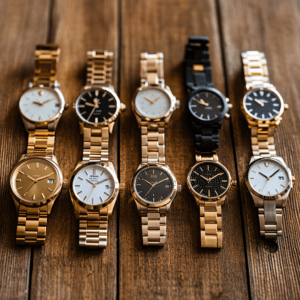
3. Balancing Functionality and Aesthetics
Practical Watch Choices
Beyond style, European women consider practicality. Watches that are durable, water-resistant, and easy to wear daily are highly sought after, especially for active lifestyles.
- Durability and Features: Sapphire crystal and robust cases ensure watches can withstand everyday wear and tear.

Multifunctional Watches
The rise of multifunctional watches, such as chronographs and smartwatches, provides a blend of style and practicality. Many women prefer these versatile timepieces for their modern features.
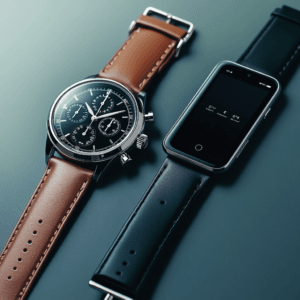
4. Cultural Influences on Watch Preferences
Regional Preferences in Europe
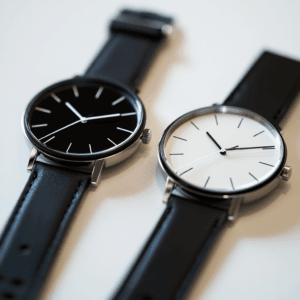
Cultural differences across Europe shape watch choices. For instance, Swiss women often favor local brands known for precision, while Scandinavian women prefer minimalist designs.
Tradition and Heirloom Watches

In many European cultures, watches are passed down as heirlooms, influencing women to choose classic designs that stand the test of time.
5. Sustainability and Ethical Considerations
Demand for Sustainable Watches
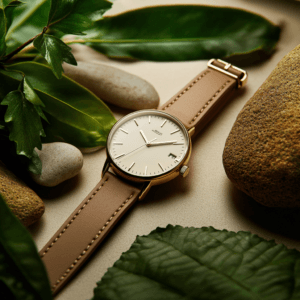
Sustainability is increasingly important, and eco-friendly watches made from recycled metals or vegan leather are in demand among European women who prioritize ethical fashion.
Vintage and Pre-Owned Watches
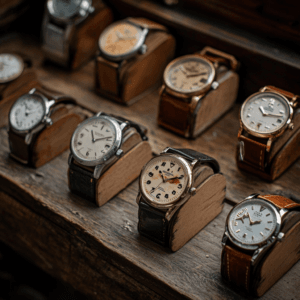
The growing interest in vintage and pre-owned watches reflects a desire for sustainability, with many opting for pre-loved timepieces that offer unique charm and lower environmental impact.
6. The Role of Technology in Modern Watch Choices
Hybrid and Smartwatches
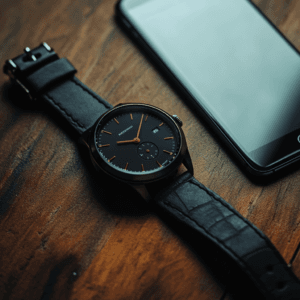
Technology plays a significant role in modern watch preferences. Hybrid watches blend classic looks with smart features, while smartwatches offer fitness tracking and connectivity, appealing to tech-savvy women.
The Rise of Smartwatches
Smartwatches like the Apple Watch and Fitbit are popular for their health and fitness tracking features, offering convenience and customization with interchangeable straps and watch faces.
7. Iconic Watch Brands Favored by European Women
Swiss Brands

Swiss brands such as Rolex and Omega are revered for their precision and luxury, often chosen by women seeking classic watches that balance heritage with elegance.
French and Italian Brands
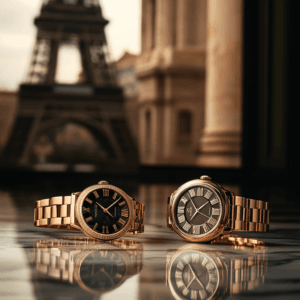
Cartier and Bulgari are beloved for their luxurious, fashion-forward designs, making them top choices for women who appreciate French sophistication and Italian glamour.
8. The Future of Women’s Watches in Europe
Emerging Trends in Watch Design
The future of women’s watch brands in Europe will likely focus on sustainability, personalization, and innovation, with an emphasis on ethically produced and customizable designs.
The Evolution of Style
Minimalism and vintage revivals will continue to influence watch trends, with European women gravitating towards timeless yet modern designs.
Frequently Asked Questions
What do European women consider when choosing a watch?
They balance heritage, style, practicality, and sustainability, often seeking watches that reflect personal taste and cultural influences.
Why are Swiss watches popular in Europe?
Swiss watches are known for their precision, craftsmanship, and long-standing heritage, making them highly valued among European women.
Are sustainable watches important to European women?
Yes, sustainability is increasingly important, with many opting for eco-friendly, ethically produced watches.
Do European women prefer traditional watches or smartwatches?
Preferences vary, but many appreciate a balance between traditional craftsmanship and modern technology, favoring hybrid models.
What are some popular watch brands for European women?
Popular brands include Rolex, Omega, Cartier, and Bulgari, known for their luxury and craftsmanship.
Conclusion
For European women, choosing a watch is about more than just timekeeping—it’s a reflection of personal style, cultural heritage, and practicality. Whether they choose a classic Swiss timepiece, a bold Italian design, or a cutting-edge smartwatch, the decision reflects a balance of tradition, sustainability, and modern trends. The future of women’s watches in Europe will continue to evolve, blending timeless craftsmanship with innovative technology and ethical practices.
Post Comment